
Dairy Barn was a drive-through convenience store popular on Long Island when I was growing up.

Dairy Barn was a drive-through convenience store popular on Long Island when I was growing up.
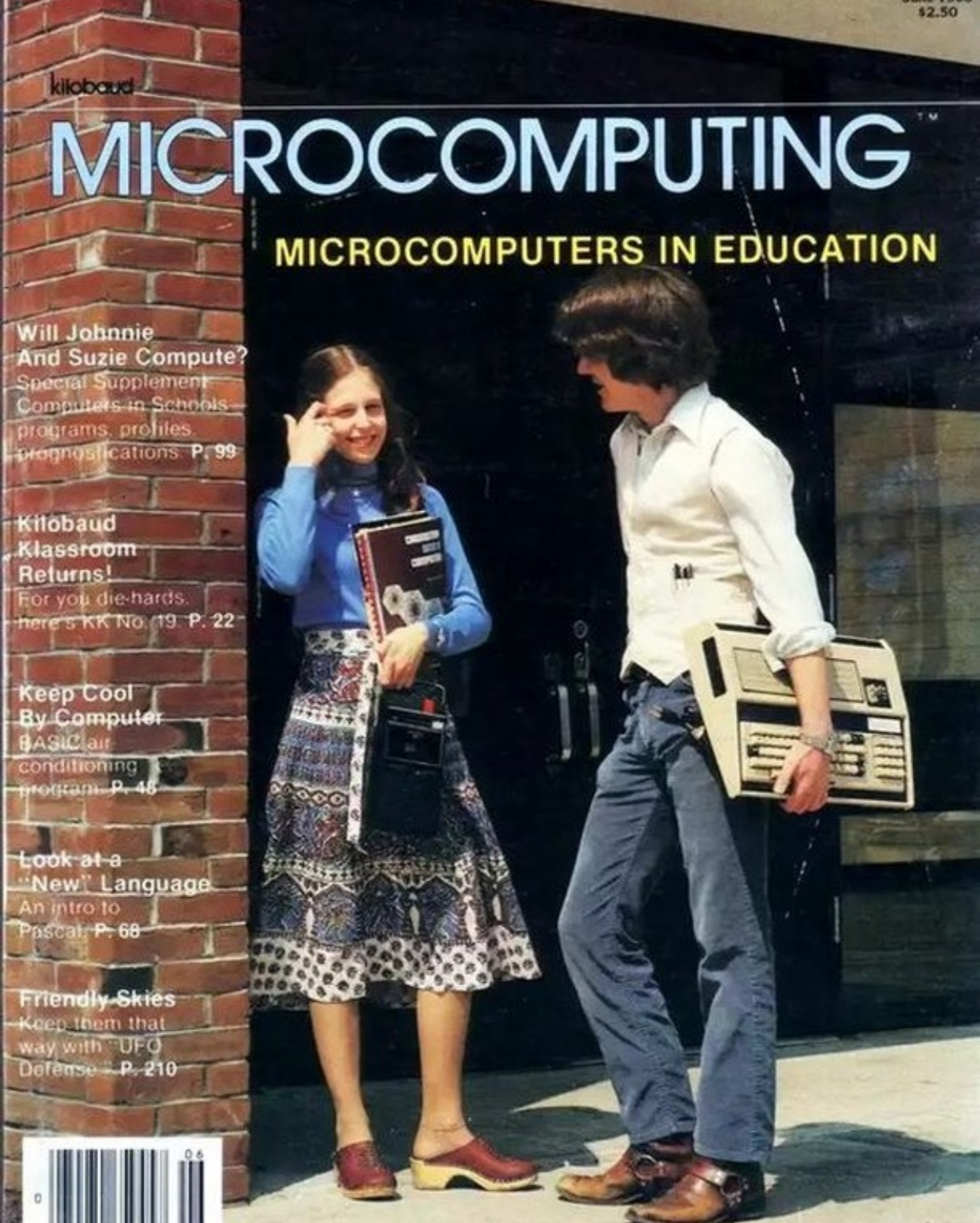
From “A Family Affair,” a Nero Wolfe novel by Rex Stout:
I have never understood why anybody passes up that bargain. It doesn’t cost a cent, and for that couple of minutes, you’re the star of the show, with top billing. It’s the only way that really counts for you to say I’m it, I’m the one that decides what’s going to happen and who’s going to make it happen. It’s the only time I really feel important and know I have a right to. Wonderful. Sometimes the feeling lasts all the way home if somebody doesn’t bump me.
Something I wrote: Walmart scales stupendous global network on open source fierce-network.com

I’ve been using the Meta Ray-Ban Smart Glasses for about a month now, and I’m finding even more reasons to wear them all the time.
If Apple came out with something like this that took prescription lenses and cost under, say, $1,500, I’d be tempted. If those glasses were equipped with a Siri version that had GPT-4’s excellent language recognition, I’d be even MORE tempted. If those glasses included facial recognition, I’d be in love—I am moderately faceblind and I hate that I go around not remembering people’s names.
Analee Newitz: Paul Linebarger was a US Army intelligence officer who pioneered psyops and wrote science fiction under the pseudonym “Cordwainer Smith.” His stories read today like Qanon conspiracy theories. [theatlantic.com]
Linebarger, who died of a heart attack in 1966 at age 53, could not have predicted that tropes from his sci-fi stories about mind control and techno-authoritarianism would shape 21st-century American political rhetoric. But the persistence of his ideas is far from accidental, because Linebarger wasn’t just a writer and soldier. He was an anti-communist intelligence operative who helped define U.S. psychological operations, or psyops, during World War II and the Cold War. His essential insight was that the most effective psychological warfare is storytelling. Linebarger saw psyops as an emotionally intense, persuasive form of fiction–and, to him, no genre engaged people’s imagination better than science fiction.
Newitz’s latest book is Stories Are Weapons: Psychological Warfare and the American Mind.

📷Something I saw while I was walking the dog


77 Types of Notes to Keep in #Obsidian [amerpie.lol] Also: 10 Lesser Known But Super Useful Obsidian Plugins [amerpie.lol]
Inner Cosmos with Stanford University neuroscientist David Eagleman: Is AI truly intelligent? How would we know if it got there? [eagleman.com]
Alt Text Hall of Fame [alttexthalloffame.org] — Honoring the excellent use of descriptive text on images for the benefit of the blind and vision impaired.
I’ve been trying to do more of that. AI is a big help.
The Comfortable Problem of Mid TV [nytimes.com] — We are entering a golden age for mediocre television, says critic James Poniewozik.
Mid is … what you get when you raise TV’s production values and lower its ambitions. It reminds you a little of something you once liked a lot…. It is prestige TV that you can fold laundry to.
Viticci sawed the display off a Macbook Air, attached an iPad in its place, and has been using that hideous chimera as his primary computer for a couple of months. The iPad functions as a display for the MacBook using Universal Control, or it can be used as just an iPad. [daringfireball.net]
They also talk about the importance of blogging, microblogging in the post-Twitter era, Viticci’s Macstories turning 15 and Gruber’s Daring Fireball turning 22, X’s resurgence as a place worth visiting, the European alternate app store, alternative browsers and more.
On the Last Archive podcast, Harvard journalist and historian Jill Lepore reads and discusses her respectful and affectionate 2013 New Yorker essay on Doctor Who. [open.spotify.com]
When I was growing up, science fiction was still fighting for respectability, so I’m still amazed whenever I learn a respected intellectual is a fan. Lepore is more of a mystery fan, but still.
Read the essay here: [newyorker.com]
Meeting Alaska’s broadband infrastructure challenge [fierce-network.com] — MTA’s Jessica Gilbert talks with my colleague Diana Goovaerts about connecting rural communities in the sprawling Alaska back-country.
Rusty Foster [todayintabs.com]:
Now we have a historically unpopular Democratic President stubbornly maintaining American involvement in a historically unpopular foreign war, for idiosyncratic ideological reasons. We have an anti-war protest movement blazing up among young people across University campuses nationwide and being met with panicked repression from sclerotic college administrations wielding a post-BLM police force that recognizes no need for restraint and the right wing gangs who work alongside them to create the conditions of violence required for police to justify the use of force on protesters, in the unlikely event they ever need to justify it.
Extremist militias are prepping for the ascension of a vindictive authoritarian monster, bent on revenge against the political and cultural elites who are paradoxically delighted at the prospect of having him to kick around again.
Also, “pro-Palestinian protesters and pro-Israel counter-protesters at the University of Alabama took turns earnestly screaming ‘Fuck Joe Biden’ at each other.”

Would you rather be alone in the woods with a man or a bear?

I brought five Lightning cables and one USB-C cable. My brain thinks it’s 2014 I guess.
I was a frequent business traveler from the 90s through the 2010s, but I’ve only done one plane trip in the past four-plus years. Funny the things you remember (stuff underwear inside shoes to keep the shoes in shape and save space) and forget (do hotels give you free toothpaste? I know they give you free soap and shampoo but toothpaste? Google says no).
Also, the bits and parts of my previously neatly consolidated travel pack of wallwarts and cords were spread allllllllllll over the house.
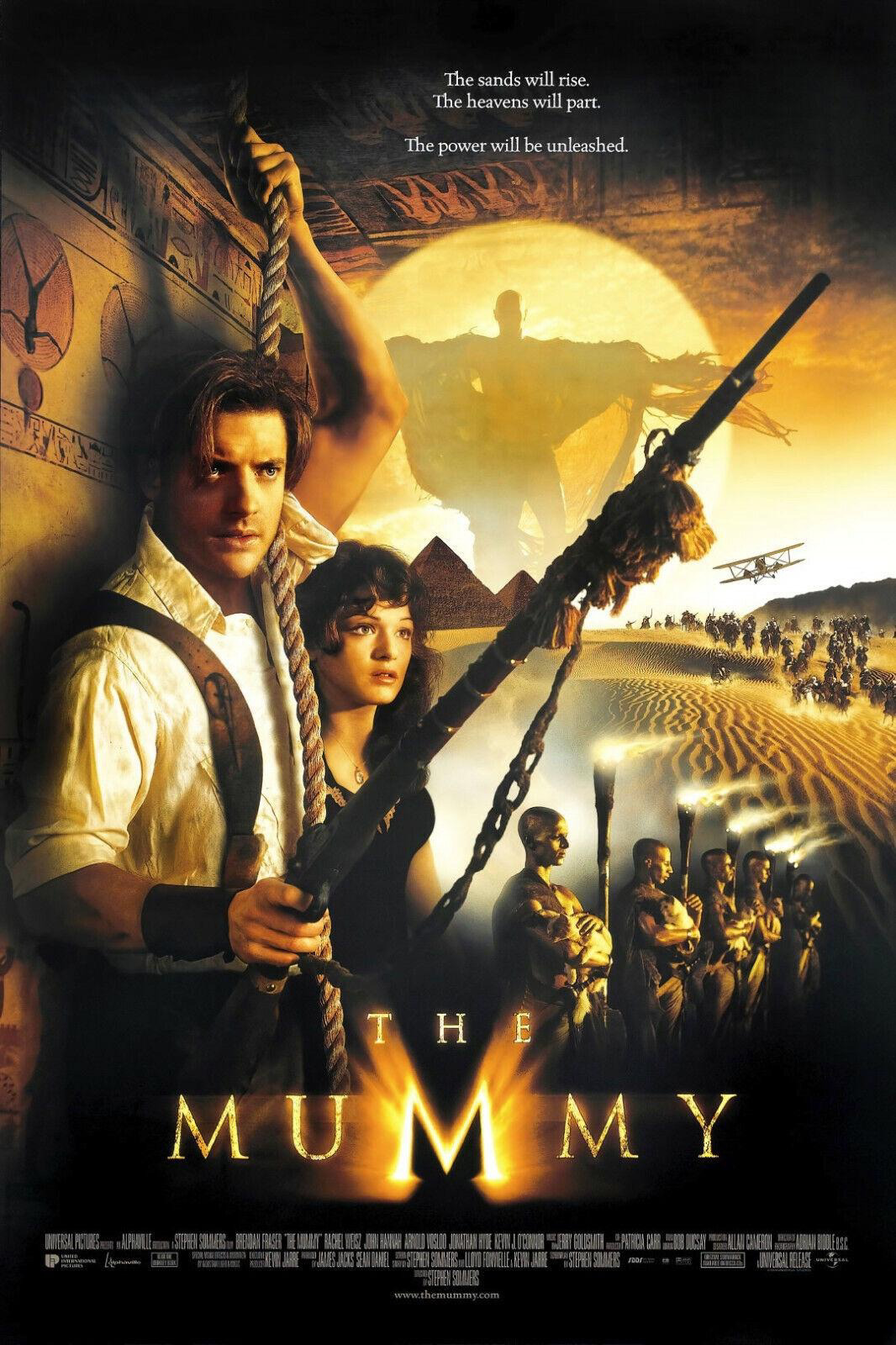
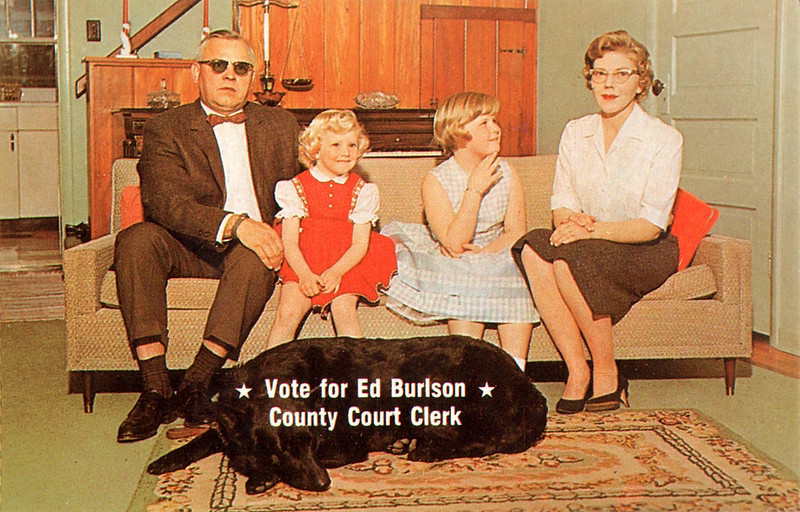
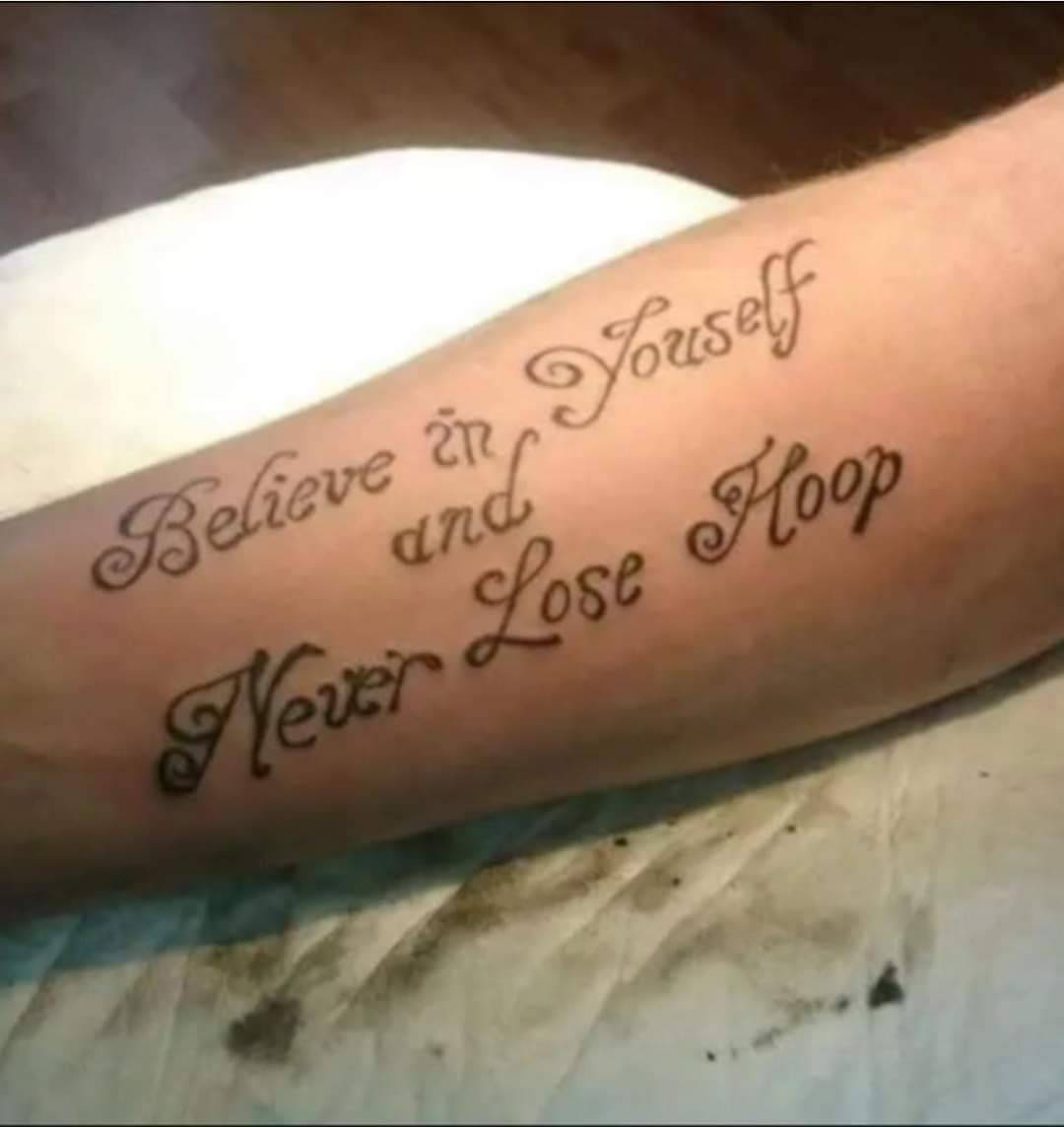


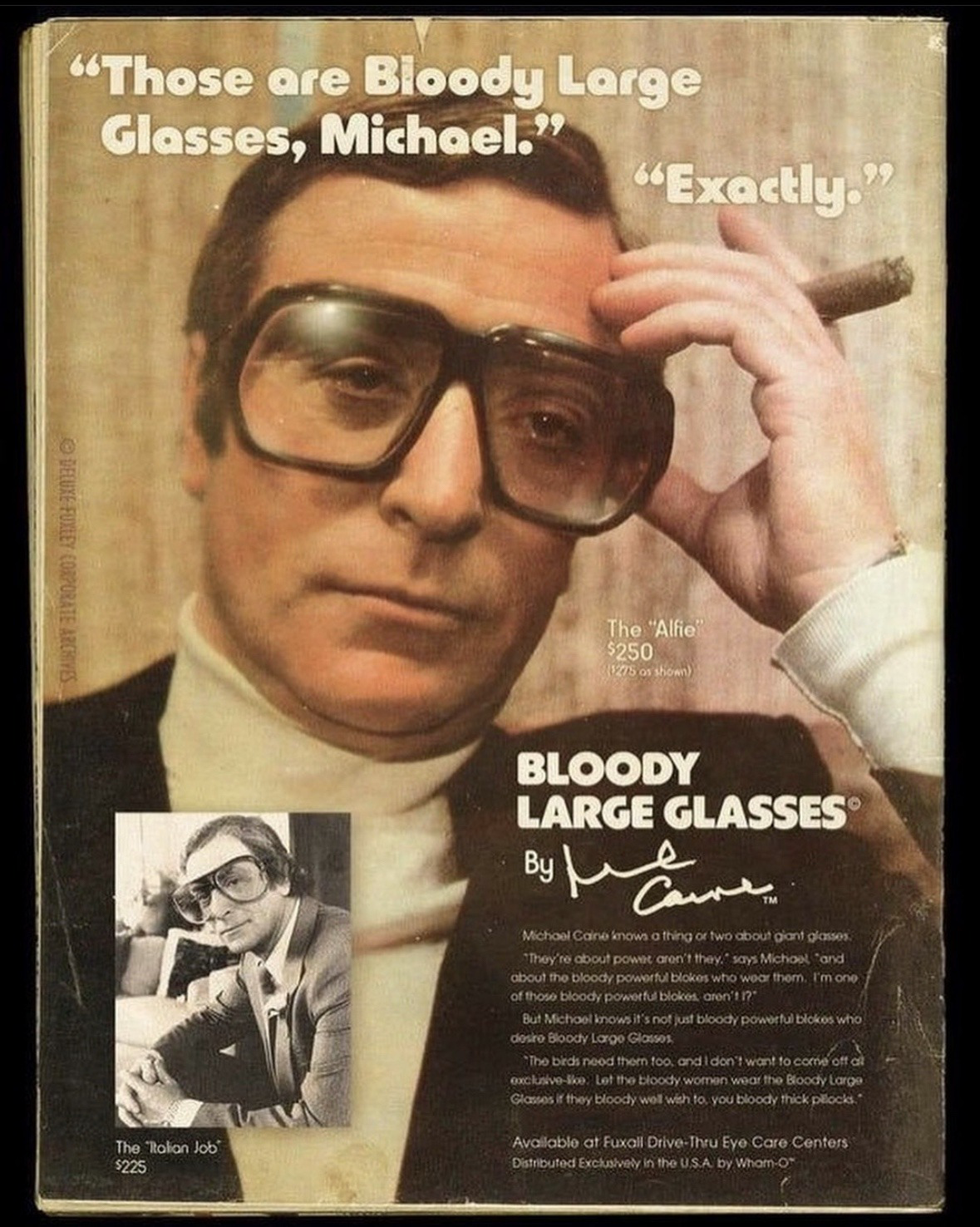
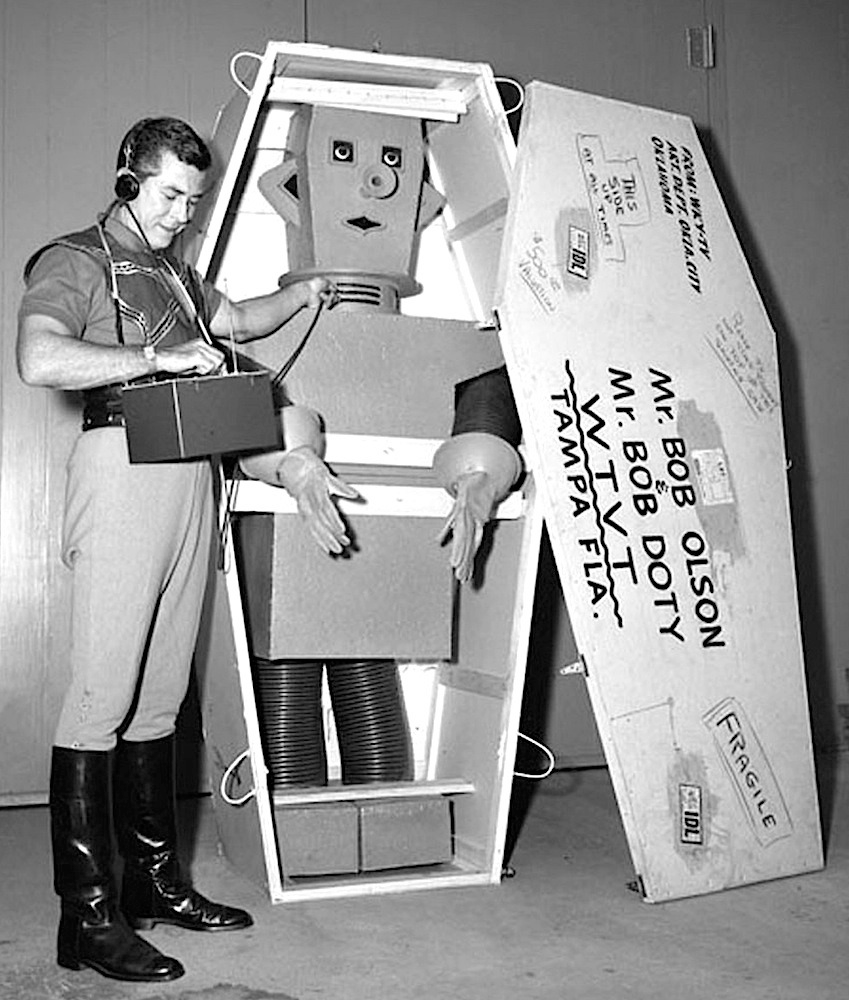
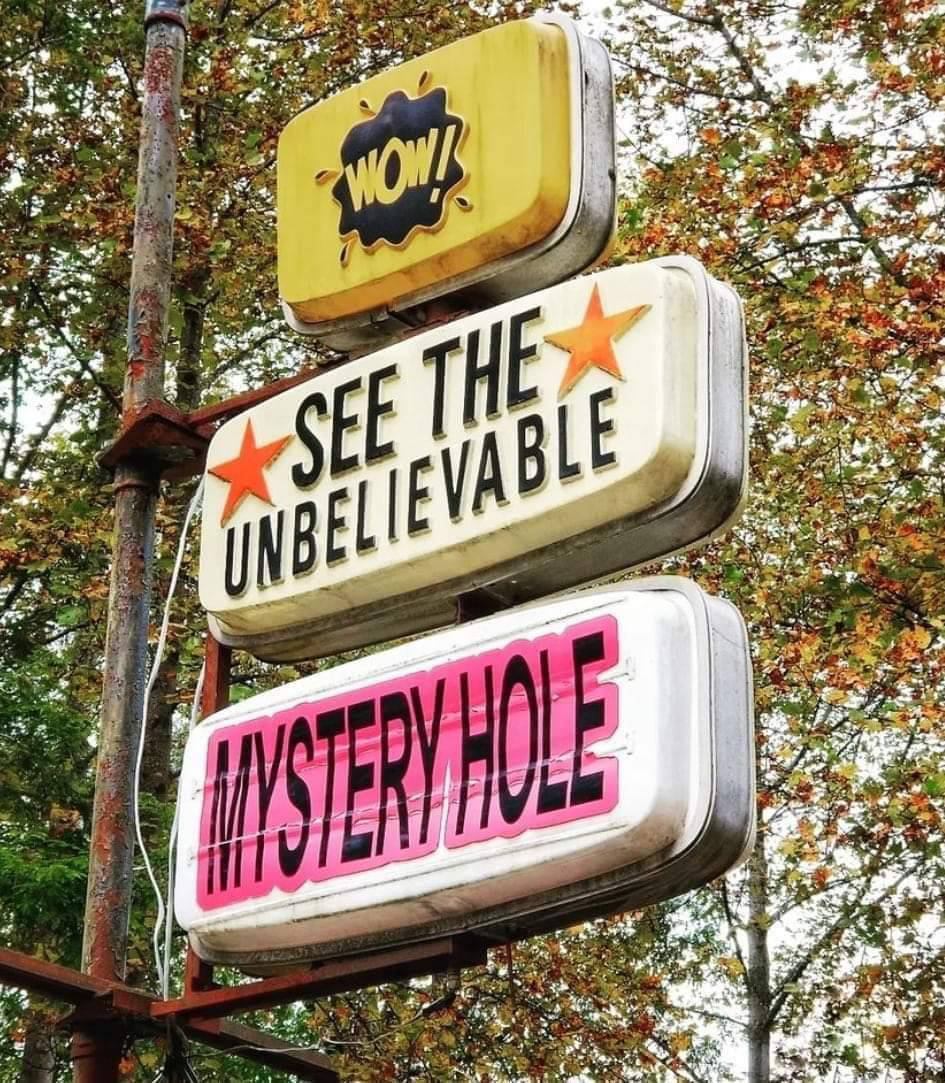

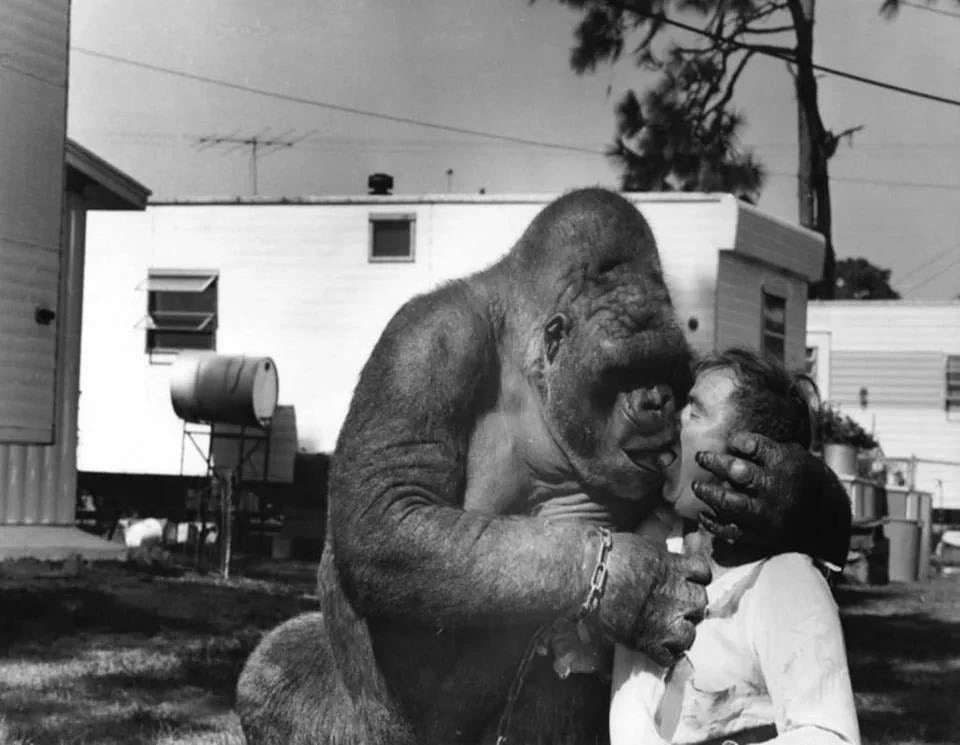
Carnival impresario Bob Noell & one of his trained apes [reddit.com]
We started watching Wonka but we wonkad out of it after 45 minutes. OTOH, we got nice naps when the movie put us to sleep, so I’ll count that as a win.
For to-do-list software, I’ve been using Things 3 by Cultured Code for most of the past 14 years, but when I started the new job, at first I thought I wouldn’t be able to continue to use Things, so i switched to Todoist, because it’s a pretty good app and it integrates well with Microsoft Outlook.
Two weeks into the new job, I learned I could use Things after all, and I was getting a little frustrated with Todoist in the Mac. It’s not a native Mac app, and it shows. Working with Todoist seems to require more taps and keystrokes than it should, and sometimes menus scroll off the top or bottom of the screen, requiring scrolling to see everything. And Todoist doesn’t support start dates for tasks, which I find important to my workflow.
This gave me an opportunity to start fresh and reevaluate task management software. Going back to Things would be about the same amount of work as just starting with something new. And Things is rigid—it works great if your brain works like Things wants it to, but I was finding it a bit difficult to work with.
Switching to-do apps is dangerous for me! I have wasted a lot of time fiddling with productivity apps. While I usually come back to Things, I’ve also tried OmniFocus, Todoist, the Tasks plugin for Obsidian, TickTick, Workflowy, Remember the Milk, Microsoft To Do, Taskpaper, todo.txt, bullet journaling and probably others I’m forgetting about.
I realized that what I want is something like Todoist but with a nicer Mac app, and with support for start dates.
So I went to Omnifocus. Here are some first impressions:
Pluses:
Also added to the plus column: Omnifocus is, as far as I can determine, unique among task managers in that it’s very easy to import and export task lists in human-readable format. So if I want to do housecleaning on the task manager—get rid of projects I’m not going to get to anytime soon—without outright deleting the projects, Omnifocus will let me easily do that.
Minuses:
Could go either way—maybe a plus, maybe a minus, maybe no big deal:
… you don’t need a low-level understanding of the neural networks at the core of large language models in order to align with the grain of that architecture. Although I can’t explain how LLMs work – arguably nobody can – I’m able to use them effectively, and I’ve begun to codify a set of guiding principles.
Here’s my list:
- Think out loud
- Never trust, always verify
- Use a team of assistants
- Ask for choral explanations
- Outsource pattern recognition
- Automate transformations
- Learn by doing
Good rules here. I’ll add a couple of guidelines:
Don’t pretend the AI is intelligent or conscious. It’s fancy autocomplete. When you talk to the AI, you’re talking to a version of yourself.
Also: The AI doesn’t have feelings. Take advantage of that. The AI is never going to get bored or discouraged. (But don’t be cruel to the AI—it’s a bad idea to be cruel, even to an inanimate object that cannot suffer.)
More like NOPE in a jar amirite

Californians voters will be asked to vote on two opposite initiatives: One will enshrine same-sex marriage into law, formally repealing Proposition 8 in case the U.S. Supreme Court overturns Obergefell. The second would enshrine transphobia. [voiceofsandiego.org]
Utahns reunited with pet cat they accidentally shipped with Amazon return [ksltv.com]
A Catholic advocacy group created an AI chatbot to answer religious questions. The bot claimed to be a priest, said masturbation is a “grave moral disorder” and that it’s OK to baptize babies in Gatorade. [businessinsider.com]
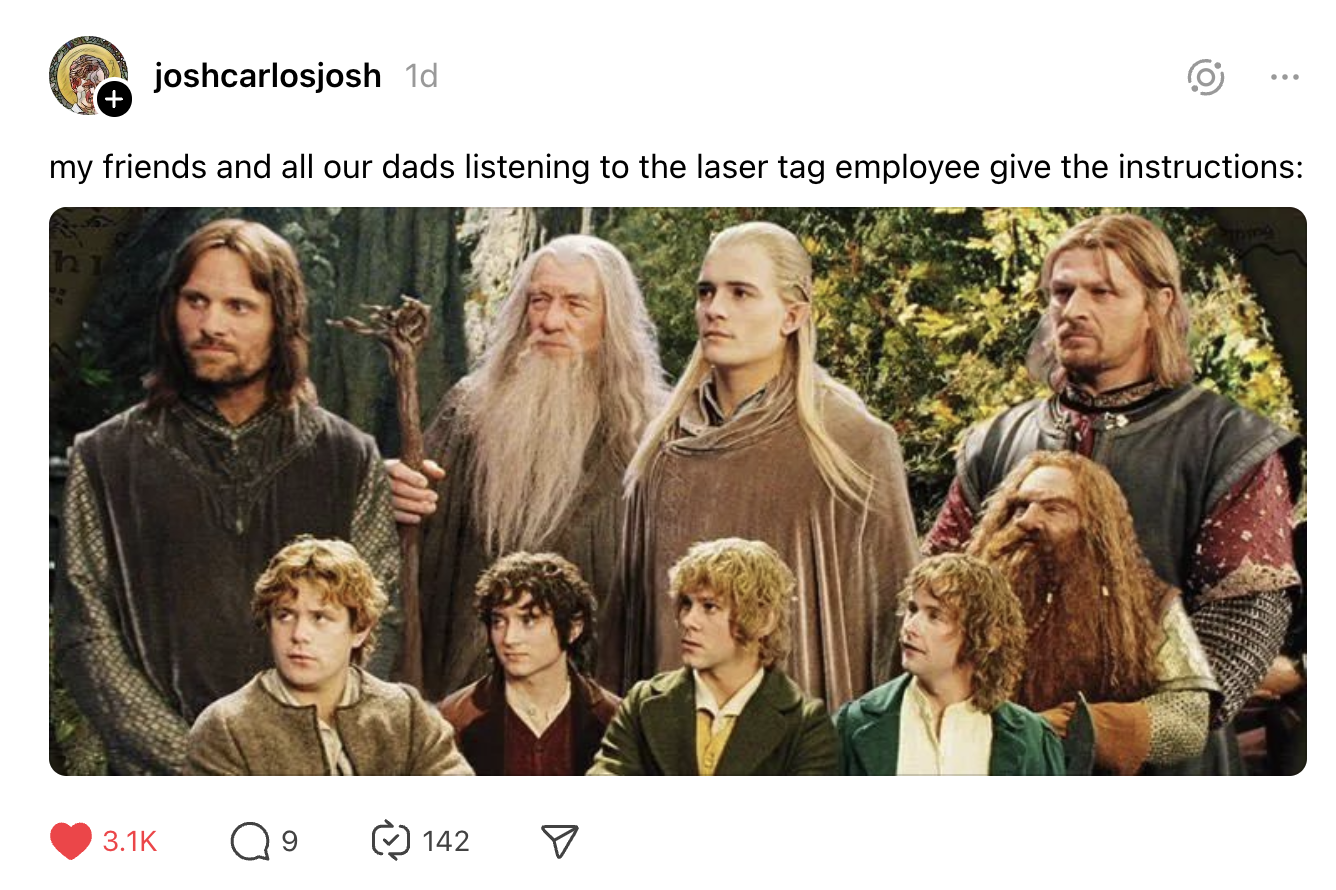

One Tin Soldier youtu.be/o8JtNHGSO…
Written by Dennis Lambert and Brian Potter, first recorded by Canadian folk group The Original Caste. A 1971 cover by Jinx Dawson, lead vocalist of Coven, became a hit in the US after being featured in the movie “Billy Jack.”
https://en.wikipedia.org/wiki/One_Tin_Soldier
I’m pretty sure we had this 45 when I was a kid.
I never saw Billy Jack, although my 8th Grade social studies class did a table reading from the paperback version of the script over the course of several days. Our teacher, Mr. Geig, was a hippie. I also read the Mad Magazine parody.
Here’s a trailer of the movie.
It looks … earnest.
“Coven” was a pioneering metal band that used occult themes, and introduced the “sign of horns” to metal.
“One Tin Soldier” is an example of a “strophic ballad,” where all the verses are sung to the same music.
It is also an example of the pop genre, “This song isn’t long enough so just repeat a couple of bits of it so it fills out the 45.”
Also: “Billy Don’t Be a Hero,” by Paper Lace (1974) youtu.be/T2seUCc3o…
Paper Lace didn’t succeed with the song—Bo Donaldson & the Heywoods recorded the hit version.
https://en.wikipedia.org/wiki/Billy_Don%27t_Be_a_Hero
Here are Bo Donaldson and the Heywoods. They are 70s-tastic.
However, Paper Lace—“reportedly the most successful band Nottingham ever produced”—scored a hit with “The Night Chicago Died,” which is a fun song and this is a fun video.
And here’s “Knock Three TImes” by Tony Orlando and Dawn.
I had a conversation with a new neighbor. His name is Oscar. He has a husband, whose name is not Felix. This seems like a lost opportunity.
One of our neighbors has a new dog, a big rambunctious golden retriever that repeatedly jumped up on me to say hello. Our neighbor would drag the dog away and the dog would race back and jump up on me again.
This was despite my attempts to discourage the dog by (1) skritching her behind her ears (2) rubbing the dog’s cheeks and (3) telling the dog she was a beautiful girl and very sweet.
I was abruptly jarred out of a sound sleep by terrible screaming. At first I thought Julie was in great distress next to me. Then I thought it might be a siren close by the house.
Then I figured out what it was. One of the cats was meowing. Loudly and directly into my ear. She wanted me to pay attention to her, so I reached out and gave her skritches, which I’m sure will not enforce this negative behavior.
I’m leveling the playing field, transforming and revolutionizing business models and delivering actionable insights. What are you up to today?

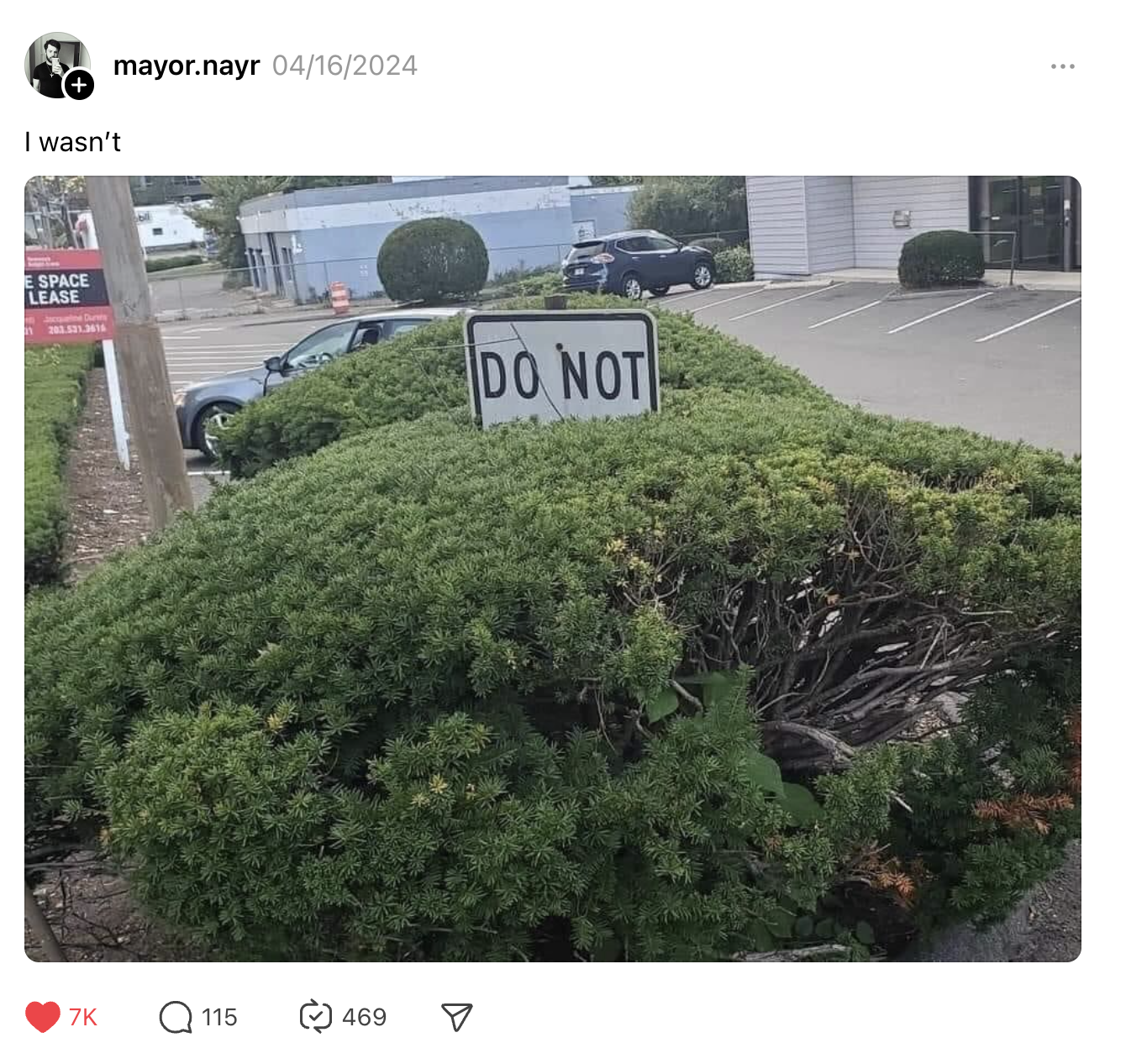


Elon Musk – Dead at 52 – Says There Is No Need for Misinformation Laws [theshovel.com.au]
Nurses Protest “Deeply Troubling” Use of AI in Hospitals [404media.co]
The specific process by which Google enshittified its search [pluralistic.net] — Cory Doctorow @pluralistic@mamot.fr
Andrew J. Hawkins [theverge.com]:
During last night’s earnings call with investors, Elon Musk threw out an all-time late-night dorm room bong sesh of an idea: what if AWS, but for Tesla?
Musk, who loves to riff on earnings calls, compared the unused compute power of millions of idle Tesla vehicles to Amazon’s cloud service business. If they’re just sitting there, he mused, why not put them to good use to run AI models? (Also, have you ever really looked at your hands? No, I mean really looked?)
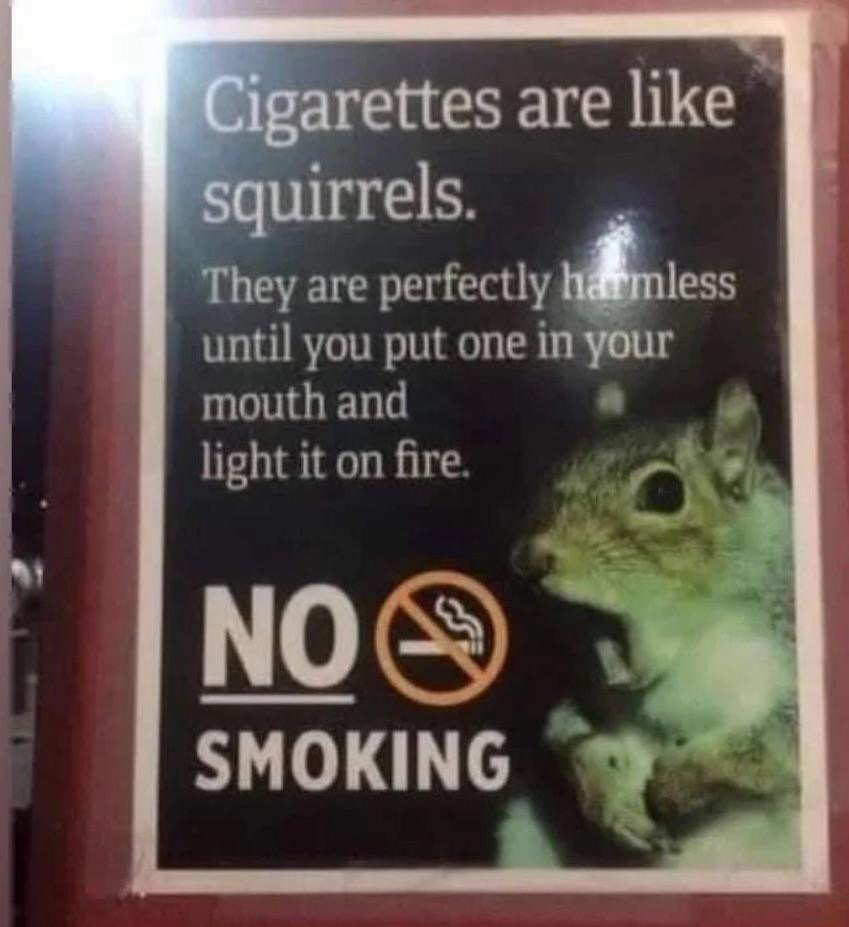
Something I wrote: Blue Planet OSS lets you BYO AI fierce-network.com — Telcos can beef up back-office operations by bringing their favorite AI to Blue Planet’s Cloud Native Platform for OSS.
I walked past a school this morning and saw a couple of dozen sweatshirts. neatly pinned spread-eagled on a chain link fence. What’s up with that?
“I’m a major hypochondriac. I won’t even masturbate anymore. I’m afraid I might give myself something.”—Richard Lewis
We watched the first episode of Shogun. I don’t understand a lot of what’s going on, but I think I like it.

Dolores Costello, Ziegfeld girl, by Alfred Cheney Johnston (1923) [reddit.com]

Chef Boy-Ar-Dee pizza mix ad w/Joe E. Ross (1968) [reddit.com]
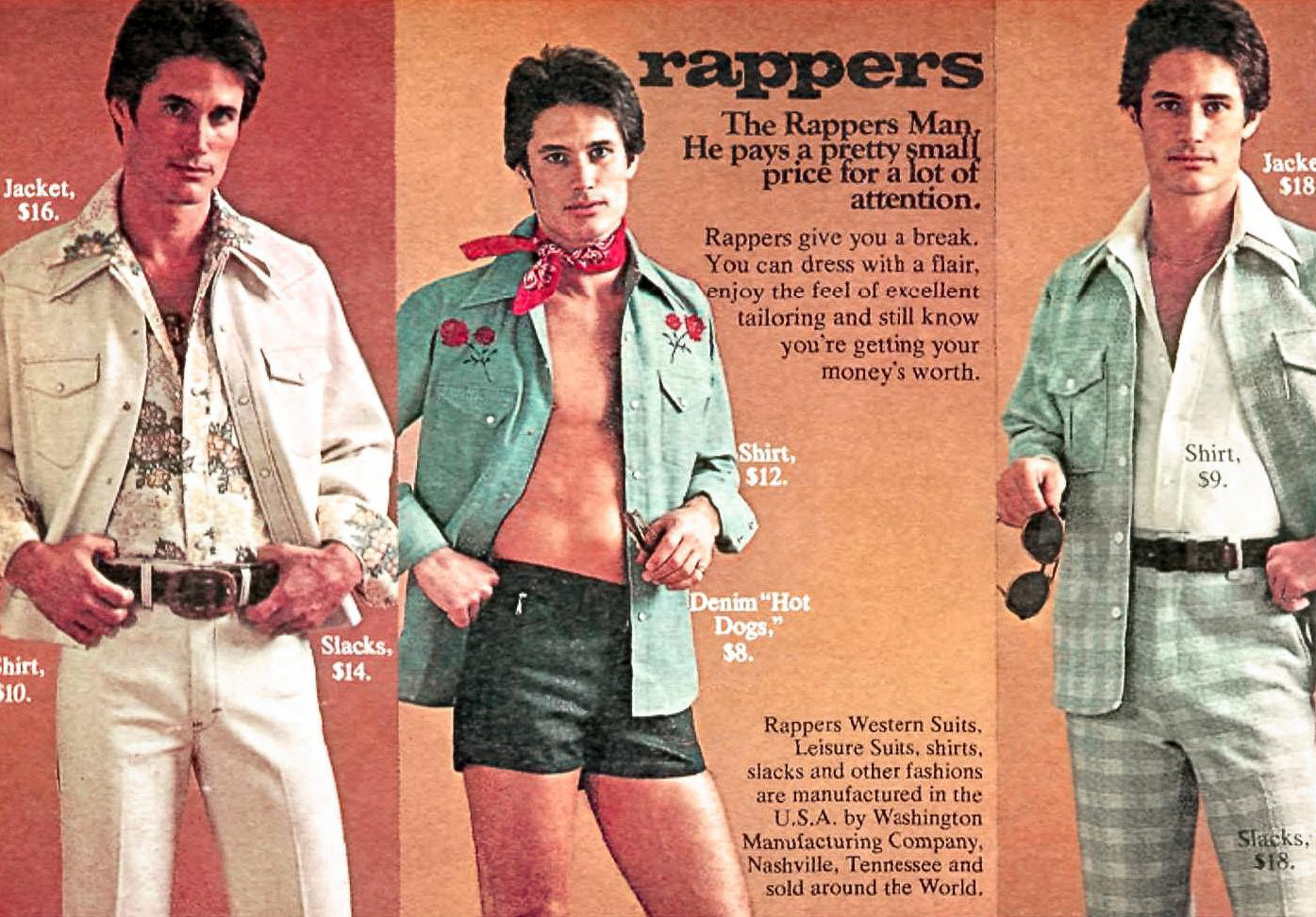
Please enjoy this Instagram reel of five classic Hollywood accents. [instagram.com]

Casey Newton [platformer.news]:
The first era of Facebook was for talking with friends and family. The second, TikTok-influenced era of the company is more focused on content from creators and other people you don’t know.
This week, we got a glimpse of the era yet to come: one where we interact regularly with both people and bots – perhaps not even always knowing, or caring, which one we are talking to.
I started on social media just to talk with other people. Some of these were actual friends and family; others came to be friends through long interactions online. We were all at the same level.
Then I started following celebrities. We occasionally interacted, but mostly I just consumed what they produced. And that’s cool. Like everybody reading this, I grew up having what’s come to be called “parasocial relationships” with fictional characters and the actors who played them.
Now I’m supposedly going to have parasocial relationships with AIs? I’m skeptical.
My big problem, and the reason I don’t us ChatGPT more, is that ChatGPT lies. Not only that, but it lies convincingly. A convincing liar is even worse than a liar. I don’t have much use for an information source that I can’t trust. I don’t see an obvious way to solve this problem.
Lloyd Evans, theater critic for the British magazine The Spectator, writes about how he attended a lecture by a woman political philosopher and found her so attractive that he was distracted, so he went to a business that we in the US would call a “rub and tug” and had sexual relations with a prostitute.
“My (surprisingly) decent proposal” The Spectator
I’ve seen a few disparaging comments on social media about Evans’ article, so I found it and read it, and it was … fine. It was a certain type of humor that isn’t for everyone. I enjoyed it, though I would not say I enjoyed it a lot. The author makes himself look like a pathetic loser, but that is the point of that type of humor.
My only quibble with the article was that the author should not have named the lecturer. But the lecturer herself seems to be taking the incident in good humor so there was possibly no harm there either.
“Spectator Writer Faces Backlash Over ‘Grotesque’ Article As Named Lecturer Speaks Out” mediaite.com
The Spectator is apparently a conservative magazine, so this has become a minor football in the culture wars. Focus, people! Don’t get worked up about a slight, ephemeral article. There is far more important work to be done.
A member of Delta’s Diamond top-tier frequent flyer program is getting backlash for habitual snitching on flight attendants who violate company policy by using their personal smartphones during flights. Ironically, the snitch is herself violating company policy. [onemileatatime.com]
Meta’s battle with ChatGPT begins now [theverge.com] — Meta is putting its AI assistant across Instagram, WhatsApp and Facebook and the company’s next major AI model, Llama 3, is here.
The US Air Force confirmed its first successful AI dogfight [theverge.com]
Good to see Grace Slick/Michael Burnham again.

Something I saw while walking the dog that put me in a good mood.

I just set it up yesterday between two Macs located about three feet from each other, and find it’s flaky. I can move my mouse pointer and keyboard control between Macs about half the time. Other times, the mouse pointer stops at the screen edge.
The Macs are on Wi-Fi. Maybe it’d work better if I connected them with a USB-C cable?
They are a 2024 MacBook Air and 2024 MacBook Pro.
“The bill would tighten standards for reusable bags and require stores to provide 100% recycled paper bags or let consumers use reusable bags.” [nbcsandiego.com]
If I’m reading this right, the plastic bag ban actually increased plastic bag waste, as grocery stores started charging customers nominally for heavier so-called “reusable” bags.
We buy those bags and reuse them once or twice until they get too dirty. We haven’t gone in on cloth bags.
USC Jewish groups pointed to a five-year-old social media post by her calling for “one Palestinian state” and the “complete abolishment of the state of Israel,” and called that anti-Semitism. The student, Asna Tabassum, questioned the college’s motives. [timesofsandiego.com]
‘Intentional’ AT&T cable cut takes down Sacramento airport comms — The Sacramento Sheriff’s Office is reportedly investigating a cable cut that snarled check-ins at Sacramento International Airport. [fierce-network.com]. Something I wrote with Liz Coyne.
A rule I try to live by: Why do old men wear white athletic socks with sandals? Because they don’t care what other people think about how they look.
And another: People spend far less energy thinking about us than we think they do. People barely notice us at all. (Unless we are Taylor Swift.)
I just looked up “fuggedaboutit” in the dictionary to make sure I’m spelling it right.
I’m going to the Linux Foundation conference in San Jose.
I’ve only taken one trip since December 2019, for personal reasons. Every other night during that time, I slept in my own bed. That seems odd to me—my business travel schedule was so heavy during previous decades of my career.
Our new coffee machine makes 12 cups so I feel the need to make 12 cups even though I normally drink less. I’m sure this will not end up with my being awake at 3:30 in the morning scrubbing the bathroom grout with a toothbrush.


January 1981. www.tumblr.com/oldshowbi…
A history of disco in America–not so much the music as the cultural movement. I lived through it and learned some things while listening to this podcast. [The Rest Is History]
It’s Still Alive — “Frankenstein” is often presented as a warning against new technology run amok, but historian Jill Lepore argues there’s a lot more going on in that book.
Now I think I need to re-read “Frankenstein.” And Cory Doctorow @pluralistic@mamot.fr might find that interesting too.
Something I saw while walking the dog: This house has a lot going on–a model train set in the front yard, and signage on the driveway gate. Note random cactus

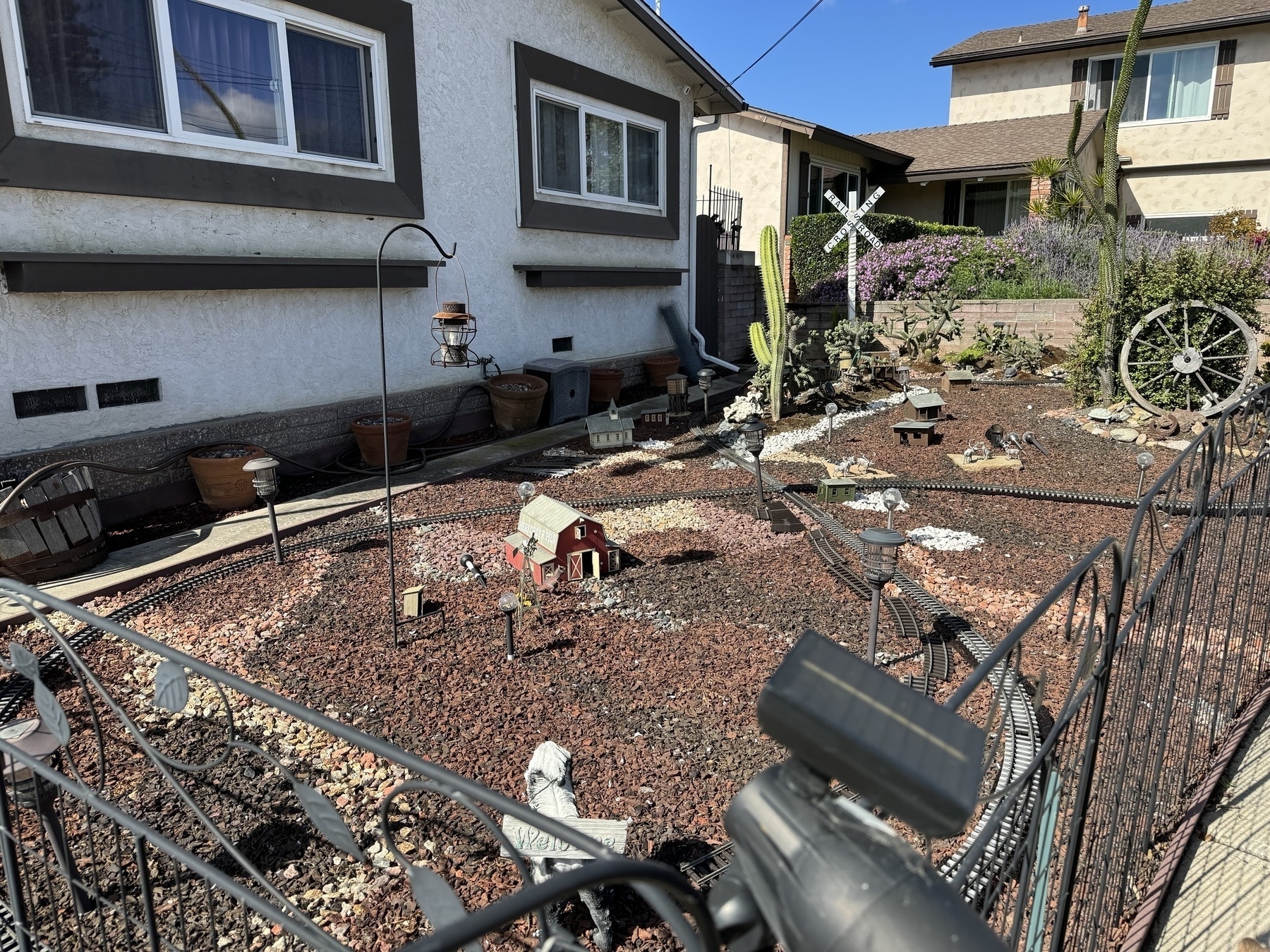
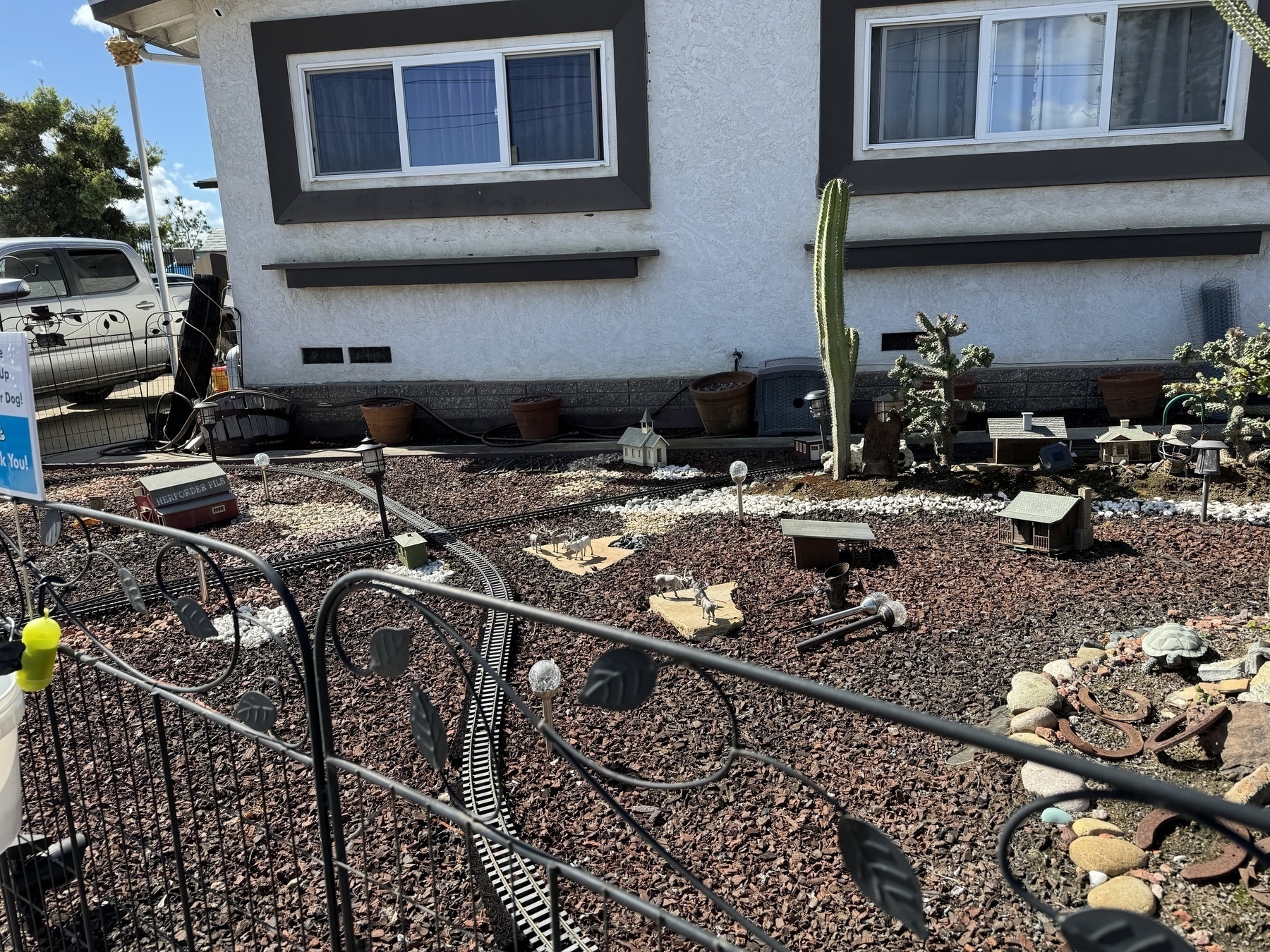
I don’t feel like I have anything to contribute to the discussion. My contribution might, in fact, be harmful; I’d basically be like one of those guys on Twitter who suddenly became epidemiology experts in 2020 on the basis of watching a bunch of YouTube videos and knowing how to use Excel. Also, I have other things I want to do with my time. And I mostly don’t like reading that kind of thing on social media, so why should I push it on other people?
I do keep up and have strong opinions, and I have been known to rant about them at length face-to-face or on the phone. I used to be more opinionated on social media, but I don’t do that here anymore—not much, at least.
I do have one or two social media friends who have no training in foreign policy or politics, but who post knowledgeably about those subjects. I do enjoy reading their posts, and find them insightful. And I enjoy discussions with them—on their timelines. Not so much here.
📷 The scrap of cloth in Minnie’s mouth was once a toy duck. It was one of the first toys we got for her when we brought her home as a pup 11 years ago.

Blue Planet sends OSS soaring to the ‘smart cloud’ — Blue Planet says its Cloud Native Platform’s Kubernetes-based containerized architecture enables rapid innovation, flexible modernization and avoids vendor lock-in. My latest on Fierce Network, with Dan Jones.
I need to use the puke emoji more.
What signal do I send when I’m walking the dog and I wave to a neighbor with a full poop bag in my hand?